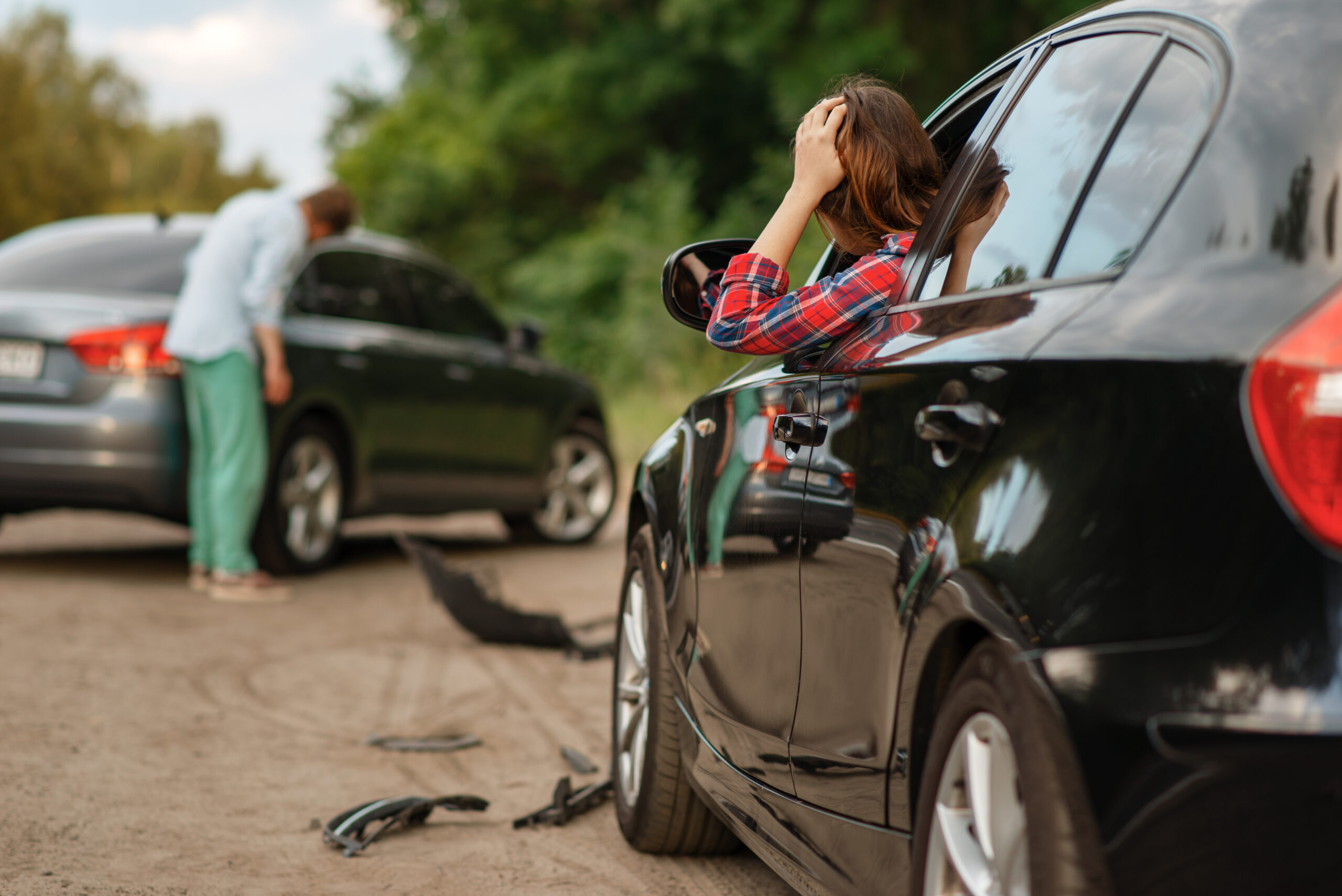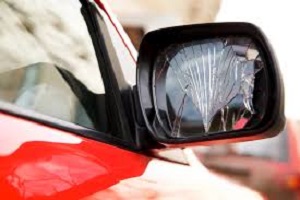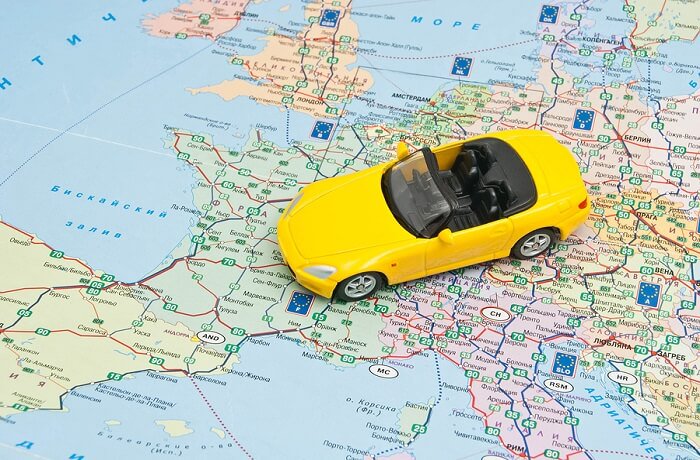Yes. Insurance for a single day is available.
Your Essential Guide to Handling a Rental Car Accident Efficiently
PUBLISHED ON Jun, 07 2023

Been in a rental car accident? Knowing what to do next can be daunting. Our guide delivers immediate steps to handle the situation, insights on insurance intricacies, and how to navigate potential liabilities. Read on for straightforward advice to confidently manage the aftermath of a rental car accident.
Key Takeaways
- It’s vital to familiarize yourself with the rental car and local driving laws to minimize the risk of accidents, and understand that both renters and rental companies have responsibilities in maintaining safety.
- Having comprehensive knowledge of your personal auto insurance, the rental agency’s insurance options, and potential coverage from credit cards is important for financial protection in the event of an accident.
- In case of a rental car accident, determining liability can be complex and involve multiple insurance policies; follow immediate steps for safety and proper reporting, and consider a personal injury attorney for injury-related legal proceedings.
Navigating Rental Car Accidents: What You Need to Know
Rental car accidents can be a result of unfamiliarity with the vehicle or driving in unknown locations. Factors like distracted driving, speeding, and impaired driving are as applicable to rental cars as they are to your own vehicle. Therefore, you should get acquainted with the rental car’s features and functions, as well as local traffic laws for a safer driving experience. Adjusting mirrors, seats, and controls, planning your route in advance can help avoid last-minute maneuvers that often lead to accidents.
However, accidents can still happen, and knowing the responsible party is crucial. Rental car companies can be held accountable for accidents caused by their negligence, such as providing a defective vehicle. But remember, as a driver, you also have a responsibility to:
- Drive carefully
- Abide by traffic laws
- Follow all safety guidelines
- Avoid distractions while driving
By taking these precautions, you can help prevent accidents and ensure your own safety on the road.
Steps to Take After a Rental Car Accident

Accident scene documentation
If you are involved in a rental car accident, the first priority is to ensure everyone’s safety. Here are the steps to follow:
- Immediately ensure everyone’s safety. Check if there are injuries and call emergency services if needed.
- Exchange contact and insurance information with other parties involved.
- Document the incident. Take photographs of the scene, damages, and any relevant details.
- Notify the rental car company as soon as possible.
- Don’t admit fault at the scene. Even if you think you caused the accident, don’t express guilt.
- Avoid revealing it’s a rental car. Some people might try to take advantage of the situation.
- Don’t sign any statements about fault or promises to pay for damages.
- Inform your insurance company about the rental car accident.
Not At Fault Accident Rental Car
In a scenario where the accident wasn’t your fault, the process remains largely similar, but there are some additional factors to consider.
- Ensure that the police report accurately reflects that you were not at fault.
- The at-fault party’s insurance should cover the damages. However, you may still have to liaise with your rental company about their procedures.
- Understand the terms of your rental agreement and insurance coverage to avoid unexpected charges.
- You might not be responsible for the deductible. If you’re not at fault, the other party’s insurance should cover this.
- You may need a lawyer. If the other party contests fault, legal advice could be beneficial.
What Happens if You Crash a Rental Car Without Insurance?
If you’ve had an accident without rental car insurance, things can get complicated.
- You’re potentially liable for all costs associated with the accident, including repairs and loss of use charges.
- You may face legal consequences if the accident caused injuries.
- Purchase insurance from the rental company. This can help limit your financial liability.
- Check your credit card benefits. Some cards offer rental car coverage.
Insurance Matters: Understanding Your Coverage
A thorough understanding of insurance options for rental cars safeguards your financial protection in case of an accident. Various types of rental coverage are available, including:
- Collision Damage Waiver (CDW)
- Supplemental Liability Insurance
- Personal Accident Insurance
- Personal Effects Coverage
Each offering different levels of protection.
We will now delve into the three key sources of insurance coverage: your personal auto insurance, the rental car agency’s insurance, and coverage provided by your credit card.
Personal Auto Insurance
Your personal auto insurance often extends coverage to rental cars, applying the same limits and deductibles as your own vehicle for both collision and comprehensive coverage. However, this typically applies only to rental cars used for personal purposes, not business use. If you cause an accident, your liability insurance can cover damages and injuries to others within your policy’s limits.
In cases of accidents or theft, collision and comprehensive coverage from your personal auto insurance can pay for repairs or replace a rental car. Hence, reviewing your auto insurance policy before renting a car is crucial to ensure coverage of rental car accidents and comprehend the coverage specifics. Be aware of your coverage limits and deductibles as they will apply to the rental car in case of an accident.
However, your personal auto insurance might not cover the rental company’s ‘loss of use’ fee, which compensates for income lost while a damaged rental is under repair.
Rental Car Agency Coverage
Rental car agencies offer additional coverage options, such as Collision Damage Waivers (CDW), which often include a deductible and may not cover all charges like loss of use. If your primary auto insurance policy doesn’t cover collision damage for rental cars, consider purchasing a CDW from the rental agency.
Rental companies also offer Supplemental Liability Insurance, an optional service that can provide additional coverage if your personal liability insurance falls short. These additional coverage options can be added to the rental agreement, providing extra protection during the rental period.
Third Party – Car Rental Excess Coverage
While in most cases, CDW coverage is included in your rental price, you are still obligated to pay the excess / deductible. If you wish to reduce your liability to zero in case you damage the rental vehicle, we recommend that you purchase car rental excess insurance.
10 Reasons to Consider CarInsuRent Car Rental Excess Insurance
- Zero Deductible – In the event of an accident, you do not want to pay the deductible. Your rental car would also be subject to the high deductible on your auto insurance. Paying for car rental excess insurance and knowing you won’t be responsible for more than that amount may give you piece of mind.
- Make no claim on your personal insurance. Perhaps you’ve had a claim recently and don’t want your premium to skyrocket. You might want to err on the side of caution and purchase insurance because filing two claims in a single year will dramatically increase your insurance costs.
- Coverage in Foreign Countries: If you’re traveling internationally, your personal auto insurance policy may not provide coverage. Rental car insurance ensures you’re covered in these situations.
- Theft Protection: If the rental car is stolen, rental car insurance could cover the cost of the stolen vehicle.
- Protection Against Vandalism: Car rental insurance can cover the cost of repairs if the car is vandalized.
- Gap Coverage: Car rental companies may charge fees for “loss of use” and diminished value if their car gets damaged. These charges might not be covered by your regular insurance, but can be covered by rental car insurance.
- Personal Effects Coverage: This covers the theft of personal items from the rental car.
- Convenience and Peace of Mind: By opting for car rental insurance, you can avoid dealing with your own insurance company, and you don’t have to worry about your premiums increasing in case of an accident.
- Coverage in Case of Insufficient Personal Auto Insurance: If your personal auto insurance has a high deductible or low limits, rental car insurance can provide additional protection. If you are renting a pricey car, keep in mind that the amount of coverage provided by your Geico auto insurance is limited to the policy’s maximum. For your enjoyable Corvette rental weekend, you might want to increase your coverage. Check your coverage limits frequently.
- Coverage for Additional Drivers: If you plan to share the driving responsibilities with someone else during your rental period, rental insurance can ensure that all drivers are covered.
>It is important to research and understand the coverage options and costs to make an informed decision that best fits your needs. CarInsuRent car hire excess insurance starts from as low as $6.49 per day* to $94.90 for an annual car hire excess insurance policy. Our policies covers the excess on damage and theft up to €2,500 and provide full protection that Includes single vehicle damage, roof and undercarriage damage, auto glass and widescreen damage, towing expenses, misfuelling, loss of car key and tire damage. We cover multiple drivers between the ages of 21 and 84 years.
See How Much You Can Save on Your Rental Car Insurance
Get StartedHow to Handle Injuries Resulting from a Rental Car Accident

Injured person receiving medical care
In the regrettable occurrence of injuries from a rental car accident, it’s imperative to immediately dial 911 and guarantee that medical help is sought for the injured parties. Document the injuries sustained in the accident by taking detailed notes, photographs, and collecting witness statements, ensuring the date and time are correctly recorded.
Your personal insurance policies such as Personal Injury Protection (PIP) and Medical Payments (MedPay) can cover medical expenses for you and passengers if injured while driving a rental car. You can pursue compensation from your personal auto insurance or the at-fault driver’s insurance by saving all medical bills and documenting the accident, injuries, treatments received, and the impact on daily life.
Final Word
Rental car accidents can be complex, but understanding your responsibilities and rights is crucial. Always prioritize safety, collect evidence, and communicate with your rental company promptly. Remember, the right insurance can save you from significant financial and legal consequences.
FAQs
What’s the first thing I should do after a rental car accident?
Ensure everyone’s safety, call emergency services if needed, and exchange contact and insurance information with the other parties involved.
What if the rental car accident wasn’t my fault?
Make sure the police report reflects this, and understand that the at-fault party’s insurance should cover damages. Nonetheless, communicate with your rental company about their specific procedures.
What happens if I crash a rental car without insurance?
You could be liable for all costs associated with the accident, including repair and loss of use charges. Legal consequences may also arise if the accident caused injuries.
What happens if you damage a car from enterprise?
If you damage a car from Enterprise, as a renter, you are liable for all damages unless you have purchased additional insurance coverage. Minor damage, such as scratches and dents, is covered by the optional Damage Waiver.
What are the possible consequences if a rental car is in an accident while the car is being driven by someone that is insured but not on the rental contract?
If a rental car is in an accident while being driven by someone not on the rental contract, the rental company’s insurance will likely be void, and the unauthorized driver’s insurance will have to cover the damages. Be aware of the potential consequences and ensure that all drivers are properly listed on the rental contract to avoid issues with insurance coverage.
Frequently Asked Questions (FAQ)
No. We provide a single journey plan. You are covered from the time you pick up the rental car up to the time you return it or on the last date written on your Certificate of Insurance, whichever comes first.
No. You should purchase a policy before starting your travel.
Find the answers you’re looking for to the most frequently asked car hire insurance questions as well as other questions relating to our products and services.



